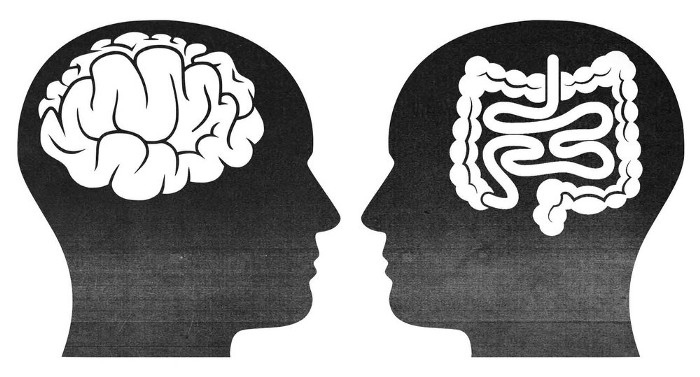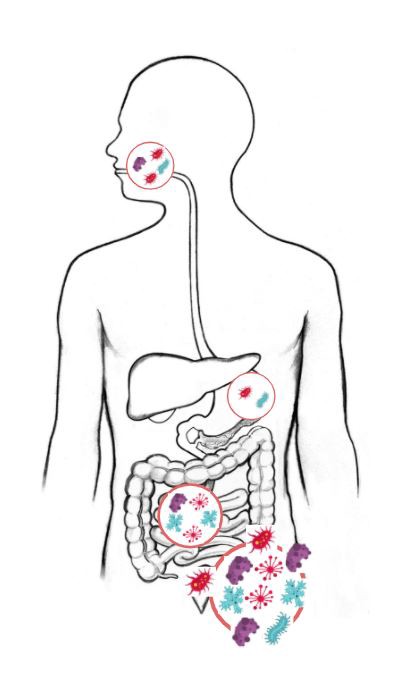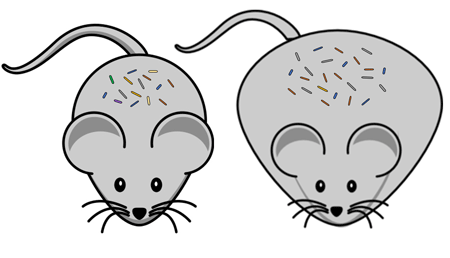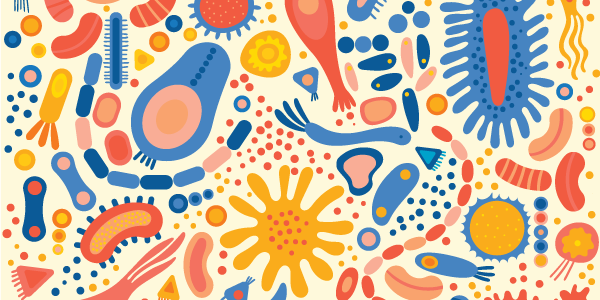We are a home for trillions of microbes — bacteria, fungi and viruses — our microbiota, whom we are tightly connected with. Our biological identity and health are intertwined with that of our microbial partners.
You might´ve heard that your gut plays an important role in your overall health & well-being. But I’m convinced that you aren’t even close to fully appreciating what the impact is for you. Every year more evidence keeps pouring in about the importance of gut health and the balance of gut microbes.

Think of it as a very complex highway system, with traffic going back and forth at high speeds on many different levels, directions and junctions. Our body affects the community living in our gut, and these microbes produce metabolites, the small compounds that regulate different functions in our body.
Firstly, the gut microbiota is tightly connected to digestion and metabolism. Gut microbiota helps break down food and absorb nutrients. Our own body can digest most, but not all of the food we eat. The food our body cannot digest, especially dietary fibers, makes its way to the end of the large intestine, which is packed with gut microbes. This is the most largely and diversely populated part, because the environment is stable and rich in nutrients.
In the colon, the end part of the large intestine, gut bacteria break down the undigested food that they use as a source of nutrients. Gut microbiota helps us to get approximately 10–15% more energy from our food — mostly from dietary fibers. While breaking down dietary fibers important metabolites are produced. For example, gut bacteria produce short-chain fatty acids (SCFA), which are important sources of energy for both human and bacterial cells. For example the cells that form the gut lining get up to 70% of needed energy from one of the SCFA, called butyrate. Gut microbes also produce essential K vitamins and different B-group vitamins from dietary fibers.
Secondly, about 80% of our immune system is located in the gut, where gut microbes play a central role in. The metabolites that bacteria produce, communicate also with our immune system both directly and indirectly. In addition, these compounds support the production of mucus in the gut, which forms a supportive and strong gut barrier. This barrier protects against pathogens and toxins that evoke inflammation. And of course diverse communities of microbes protect against the overgrowth of harmful pathogenic bacteria while competing for food and space.
Moreover, gut microbiota forms a linked axis with the brain and nervous system, prompting many scientists to refer to as “the second brain”.

We’ve all probably heard of the “happy hormones” serotonin and dopamine. We used to think these hormones are produced in the brain. But take a moment to really consider this: up to 95% of serotonin and about 50% of dopamine are produced in the gut. These hormones are responsible for controlling your mood and are associated with the feelings of happiness.
All this time we´ve been looking for happiness in the wrong places!
Scientists used to think depression and anxiety caused or contributed to gut problems, but now there is evidence to show it could be the other way around, that inflammation in the gut could influence the development of mental disorders such as depression and anxiety.
To meet the beneficial effects of gut microbes, it is important that the microbiota is diverse and balanced. Otherwise the effect can be the other way round — your allies can become the enemies. An unbalanced microbiota can promote the development of various diseases — metabolic diseases like obesity and type II diabetes, neurological disorders like anxiety, depression, autism spectrum disorders, heart and kidney disease, cancer, autoimmune diseases and many other illnesses.
If you don’t have good relationships with the communities living in your gut, you´ll always be struggling to get into a balanced healthy state.



